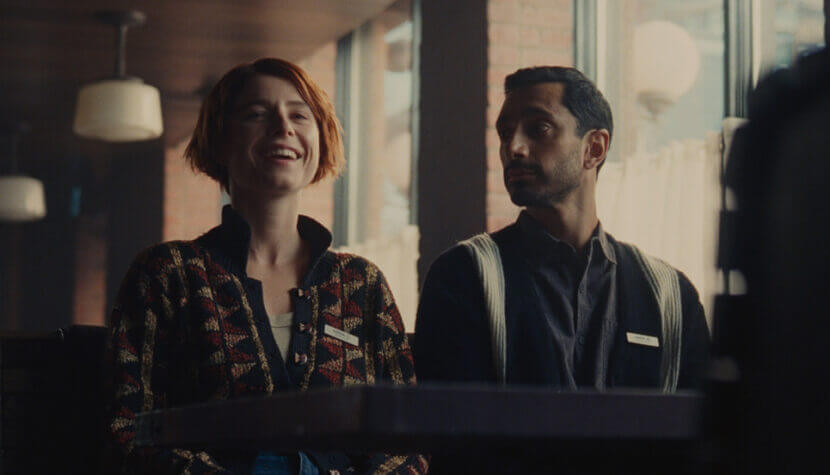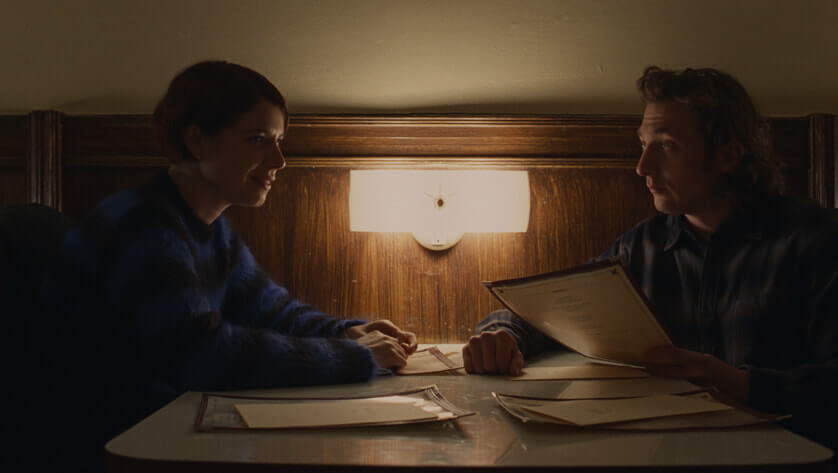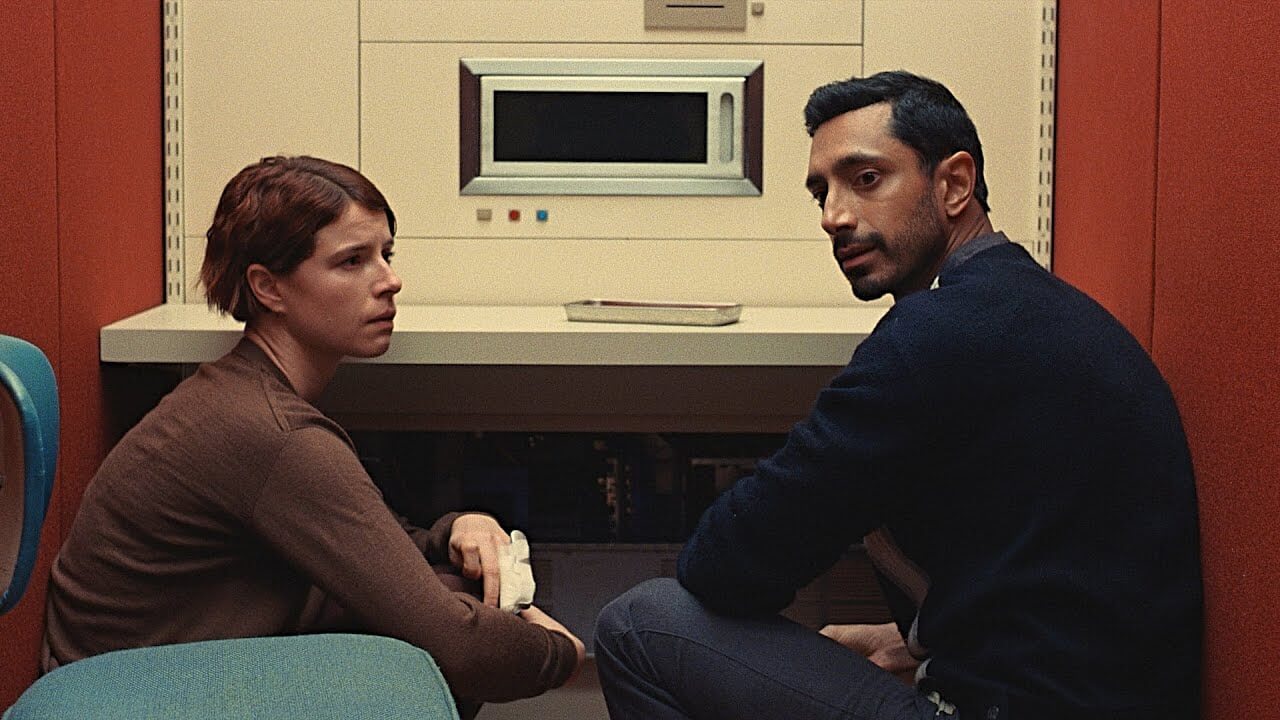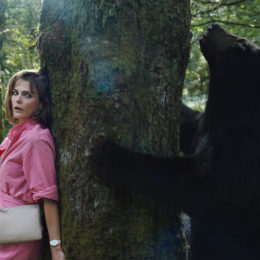FINGERNAILS. Anti-romantic Science Fiction [REVIEW]

In the stark, seemingly plucked from the ’70s interiors of the Institute of Love, several couples participate in an unusual course. Through a series of diverse exercises, they are preparing for the final test that will answer the question of whether there is true love between seemingly infatuated individuals. The test is conducted by a machine that analyzes… the torn-off fingernails of the course participants. The plot of the anti-romantic tragicomedy Fingernails on Apple TV+, directed by Christos Nikou, is built around this peculiar and, let’s not deceive ourselves, quite brutal process.
The English-language debut of the Greek director touches on familiar contemporary problems: the increasing number of deteriorating relationships, the inability to form deep emotional connections, or the growing doubts about committing to another person permanently. In the reality depicted in Fingernails, these doubts are eliminated through the mentioned “nail” procedure, but Nikou seems to suggest that depriving romantic relationships of the element of unpredictability can result in something much worse: a sense of loneliness in a theoretically successful relationship. This is exactly how Anna feels (brilliant as always, Jessie Buckley), who has been in a relationship with Ryan (Jeremy Allen White, known from “The Bear”) confirmed by a positive test result for years. In conversations with friends, she often investigates whether other couples have undergone the test, revealing her above-average interest in the subject. Finally, she manages to get a job at the Institute of Love, where she begins to assist in conducting love tests. Her mentor is Amir (a fantastic, subdued role by Riz Ahmed), who meticulously analyzes the behaviors of the tested couples. The more experienced colleague not only helps Annie understand the intricacies of her new job but also prompts her to reflect on the state of her, albeit positively verified, relationship with Ryan.

Watching Fingernails, it’s impossible not to draw parallels with another English-language debut by a Greek creator: The Lobster (2015) directed by Yórgos Lánthimos. The film by the most esteemed contemporary filmmaker from Greece also approached the theme of interpersonal relationships in a specific way, although it did so in a far more absurd and surreal manner. In Fingernails, Christos Nikou chooses a less allegorical path and decides to delve into the romantic dimension of pairing, creating a vision of an almost anti-romantic world in which emotional relationships boil down to a raw, mechanical calculation. The story told in “To może boleć” resonates with the psychological struggles of modern people: the eternal need for validation of life choices, the fear of making important decisions, and the inability to honestly assess feelings, both one’s own and those of the closest person. Anna’s character, deeply believing in the sense of the feelings verification procedure between two people, has something of Orwellian fatalism – faith in the system simultaneously serves as a verdict on her hitherto stable relationship approved by the prevailing rules. Brilliantly portrayed by Jessie Buckley, the protagonist appears as if torn from the clutches of Big Brother, in whose judgments she had blindly believed so far.
Related:

Fingernails is raw and intimate cinema, probably not fitting the expectations of the science fiction genre. There are no spectacular sequences here, and even the mentioned machine testing human love does not present itself very impressively. However, Christos Nikou’s film is not meant to amaze or shock – it is a very insightful study of interpersonal relationships, raising important questions about the templates and formats into which we desperately try to squeeze our feelings and ourselves. It is an anti-romantic, somewhat dystopian vision, in the spirit of Black Mirror, of a reality in which a machine makes decisions about romantic engagement for people. Christos Nikou asks us to answer the question ourselves: do we want to strive for such a world – devoid of emotional excitement and unpredictability?





